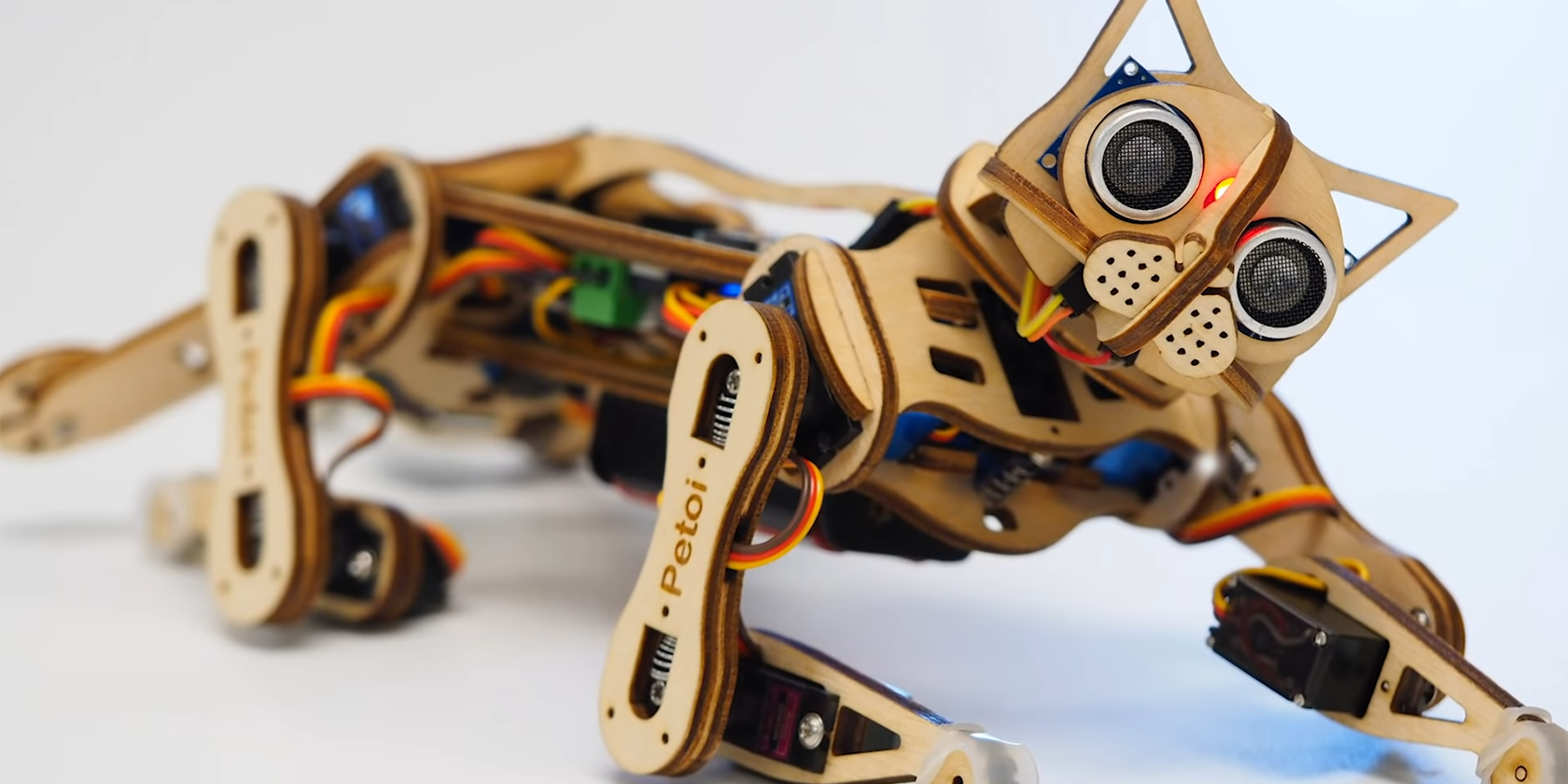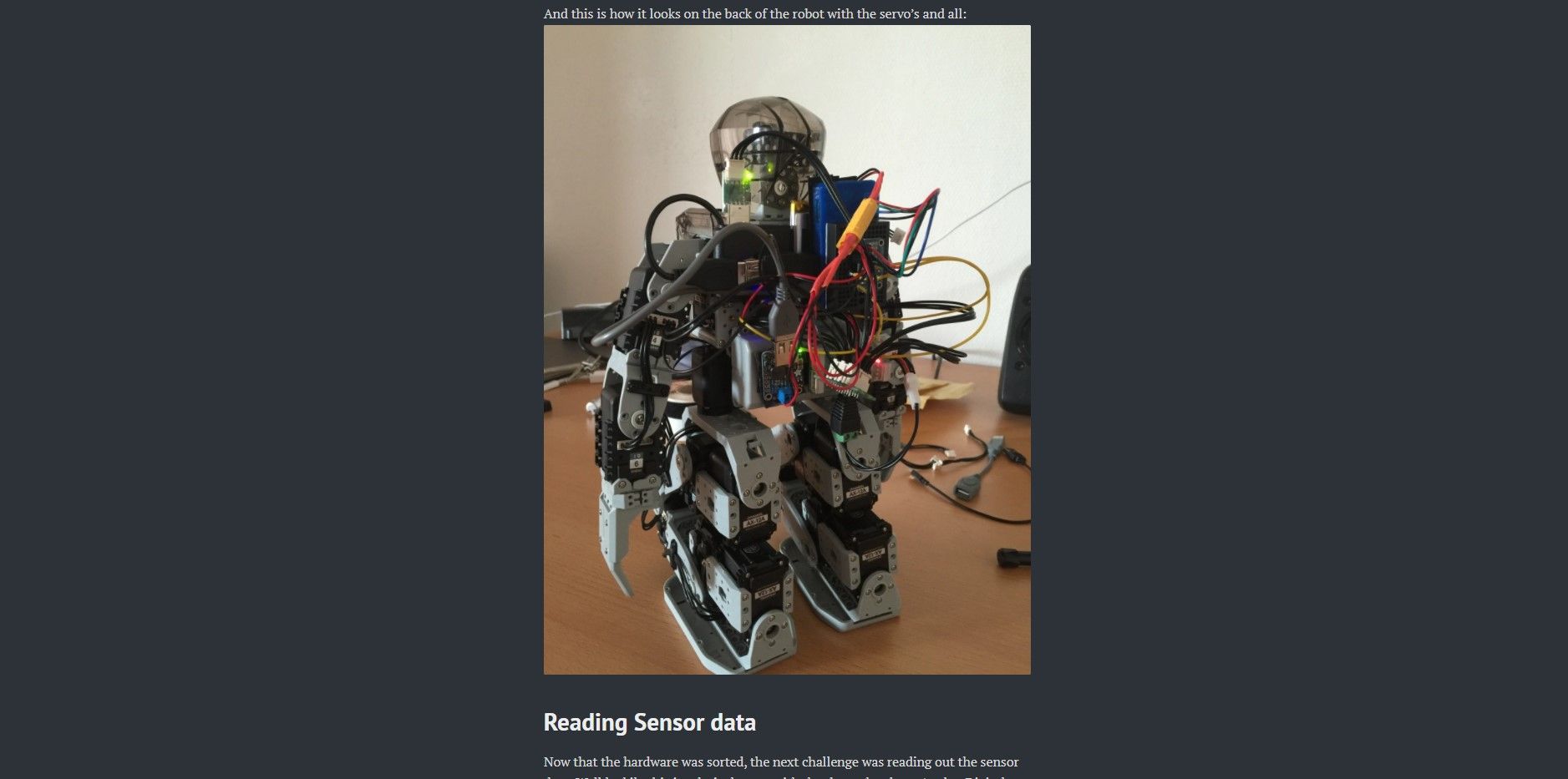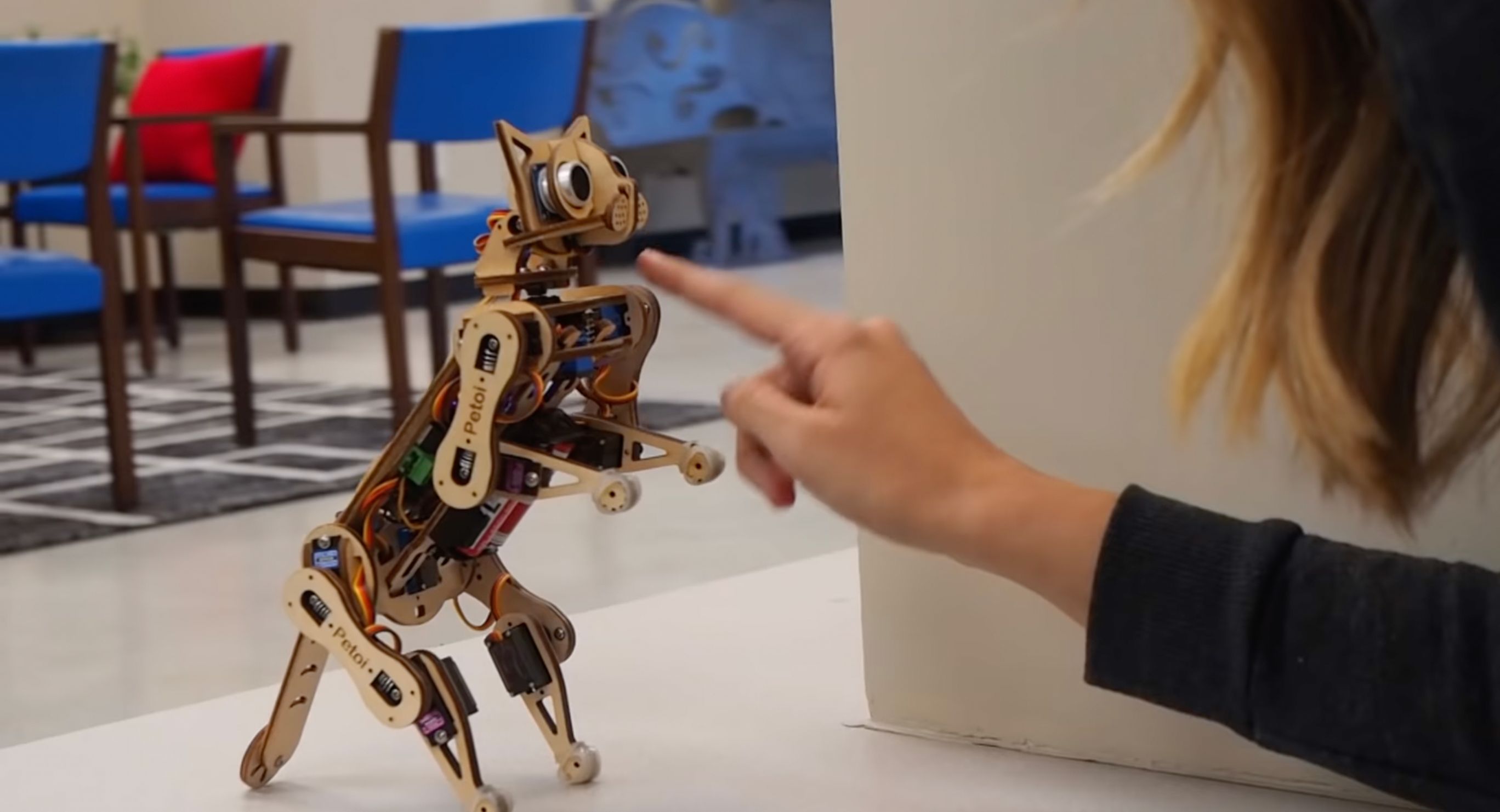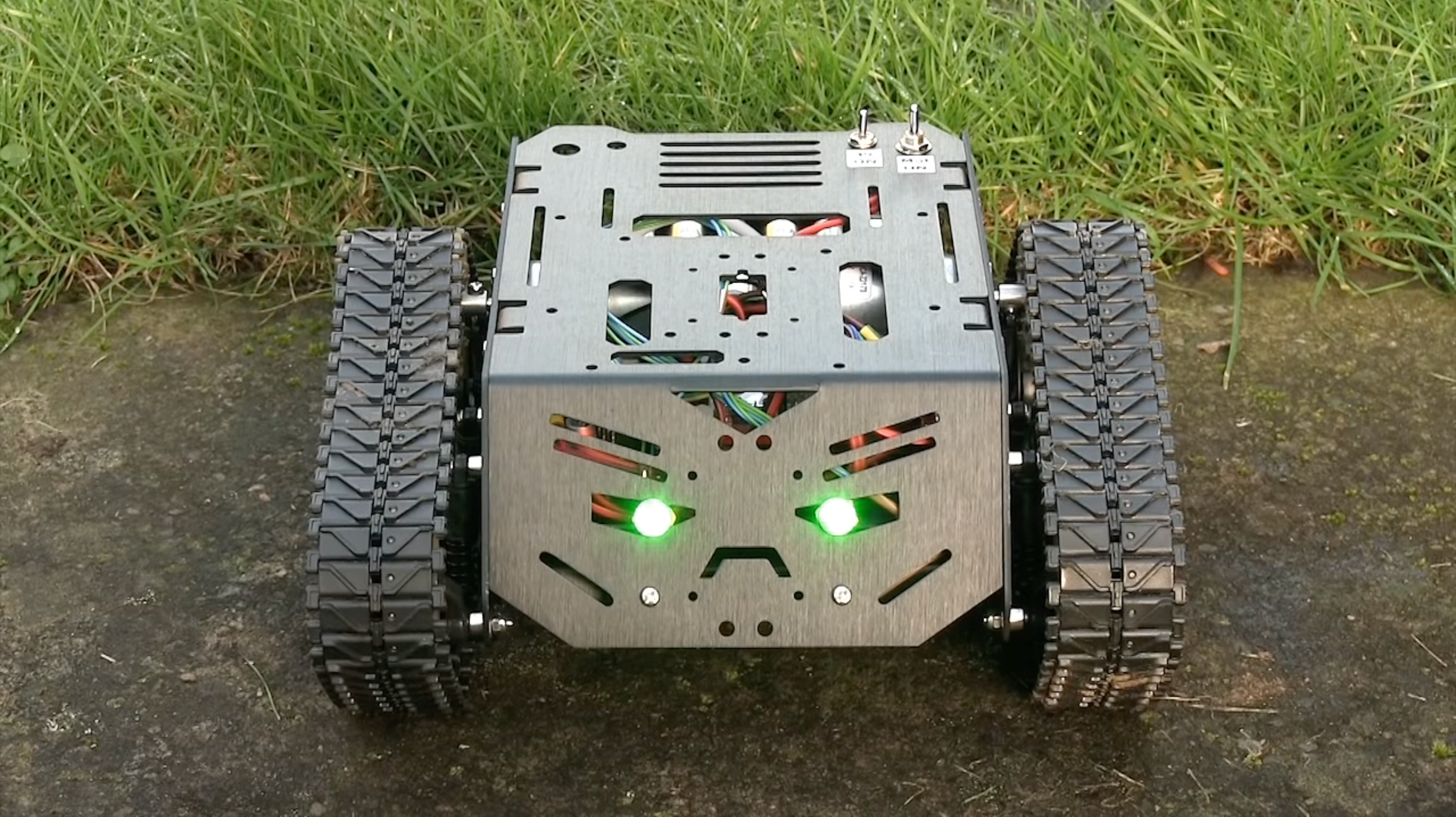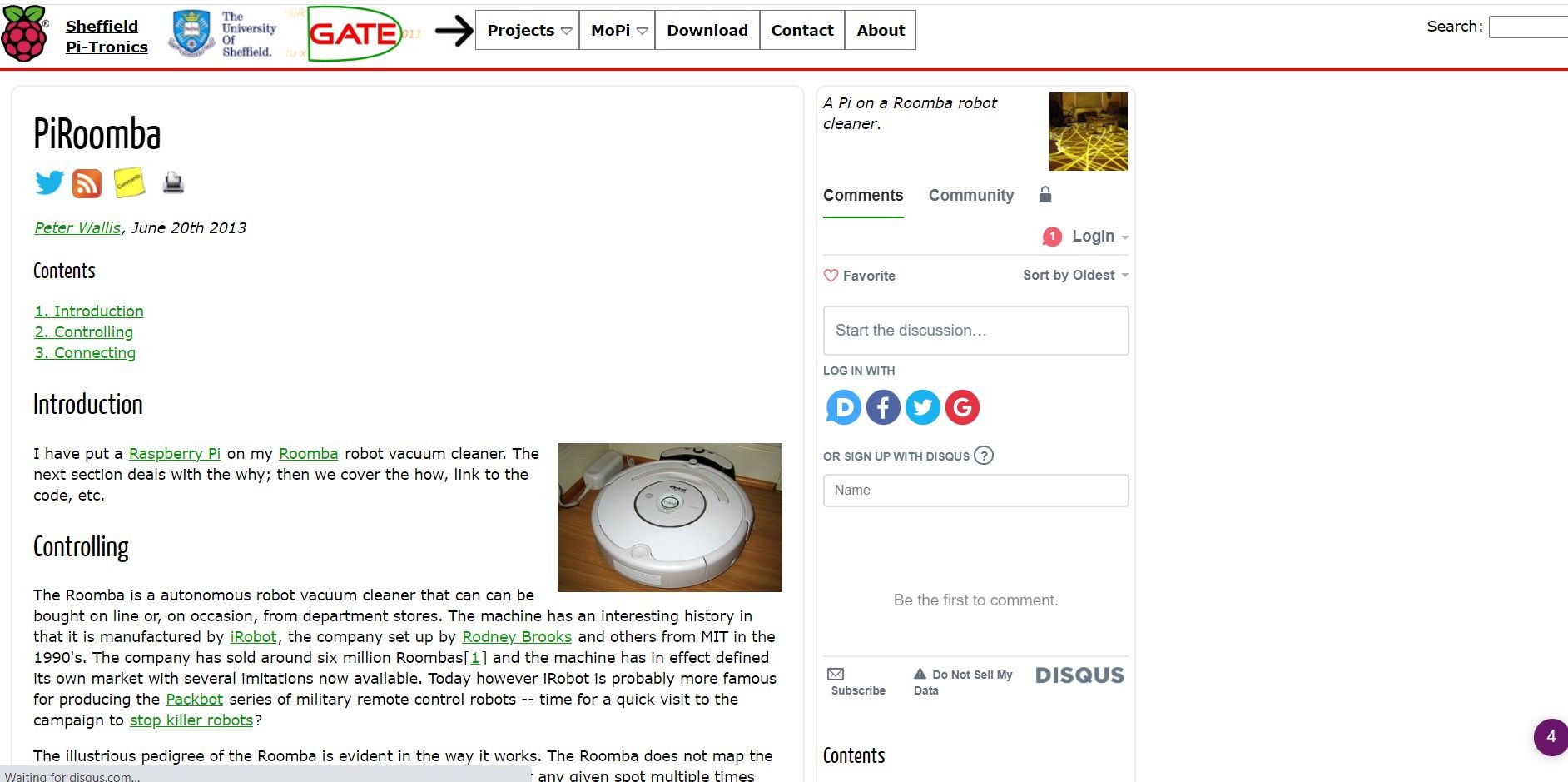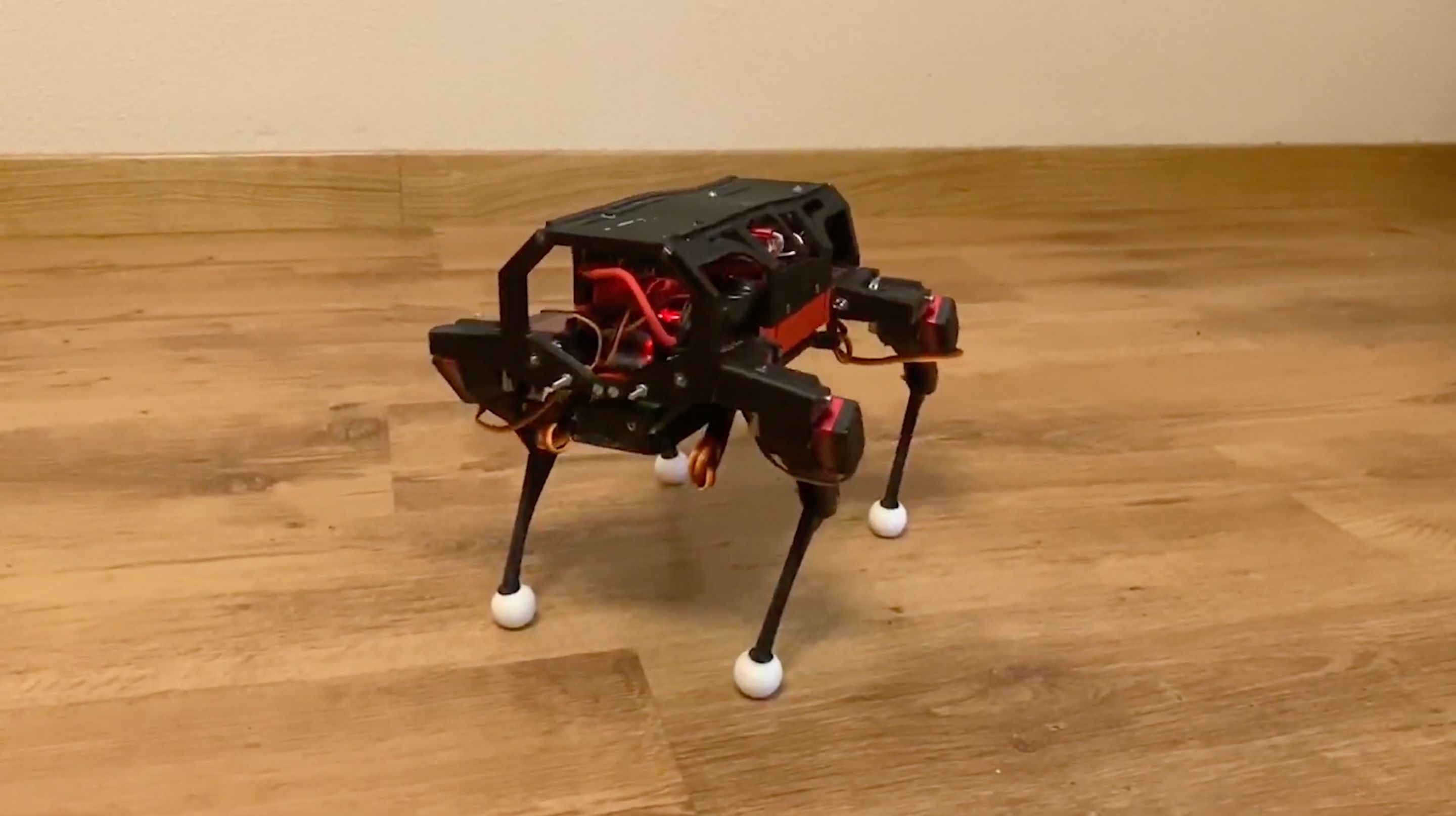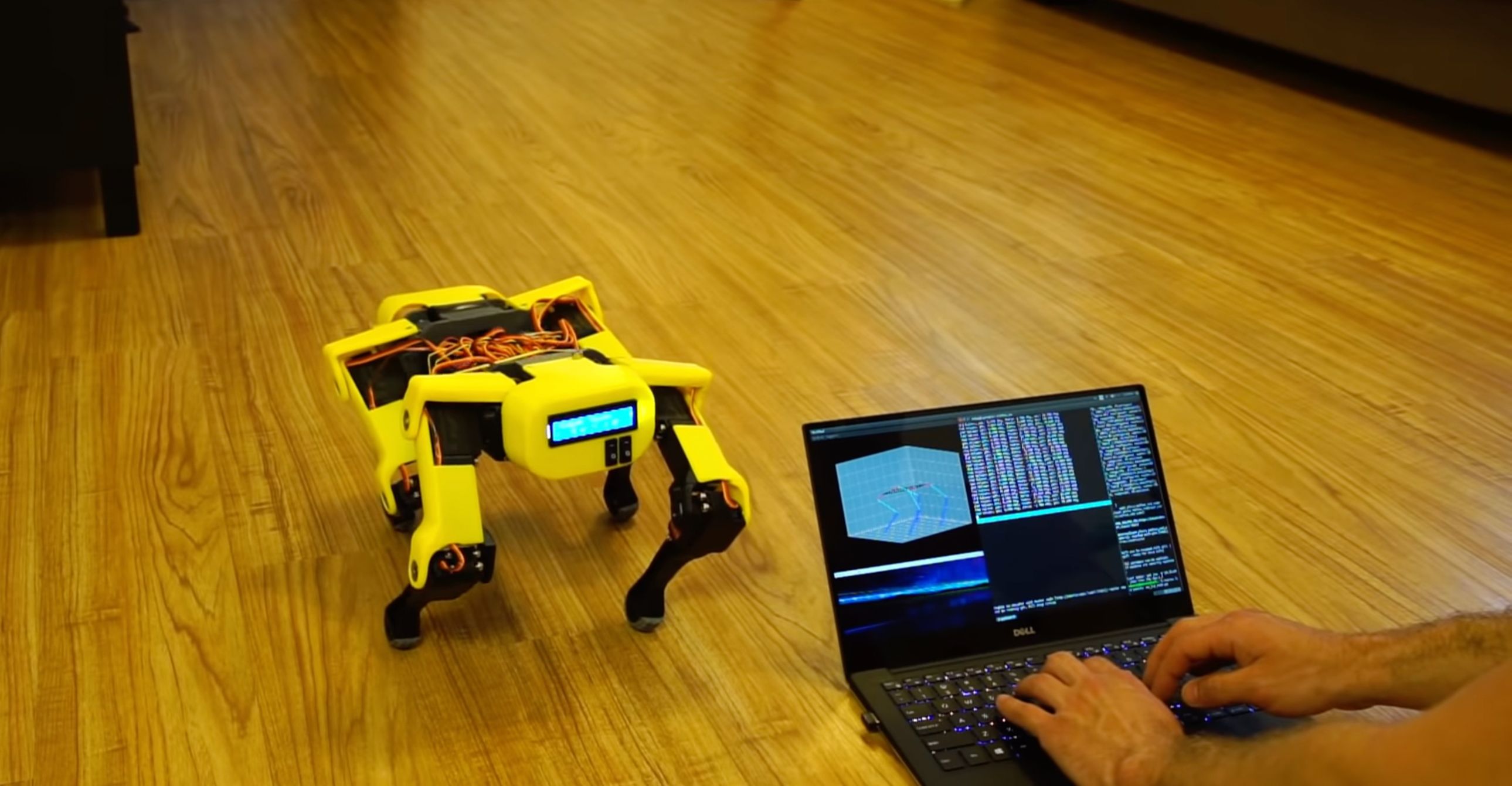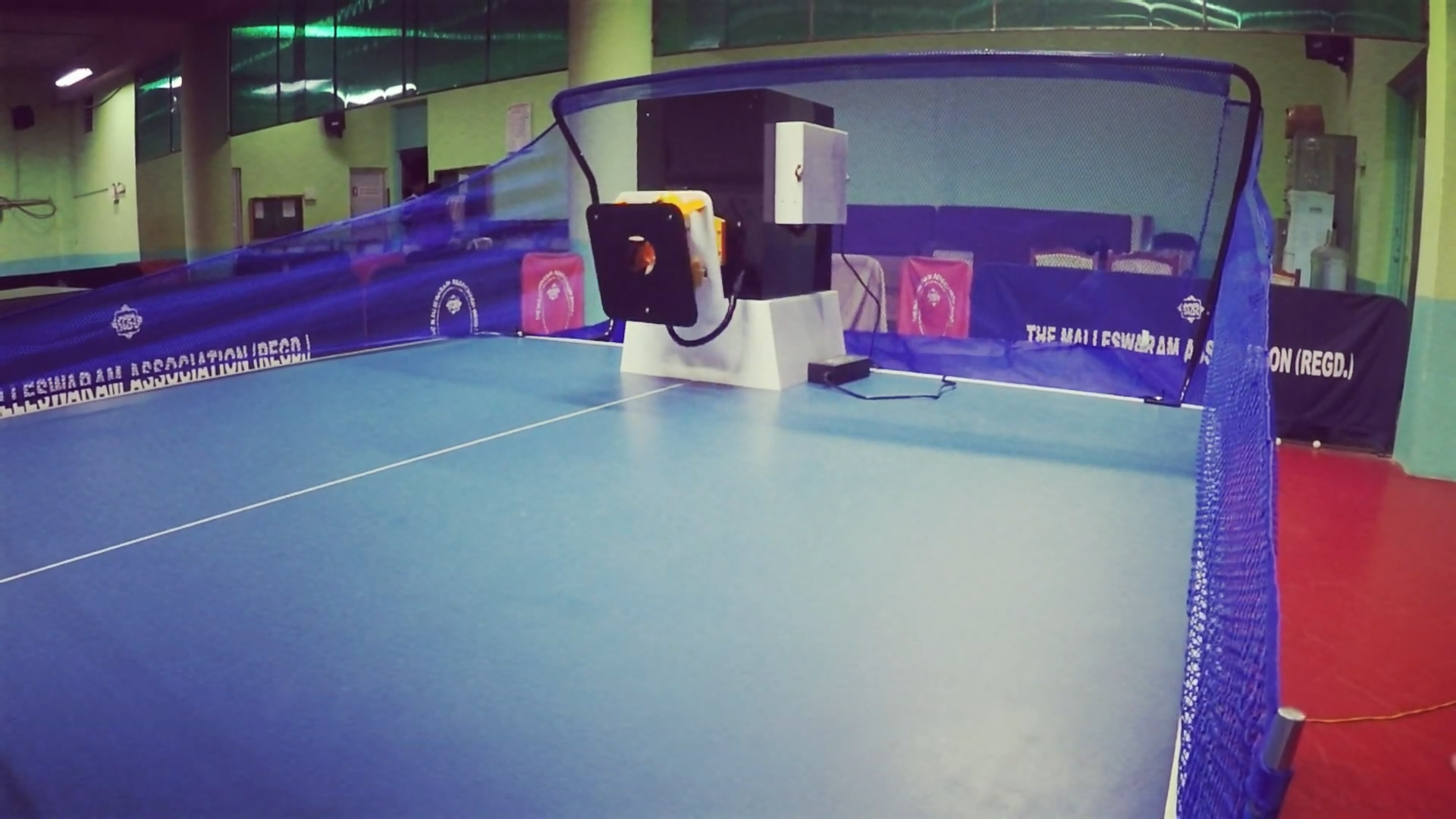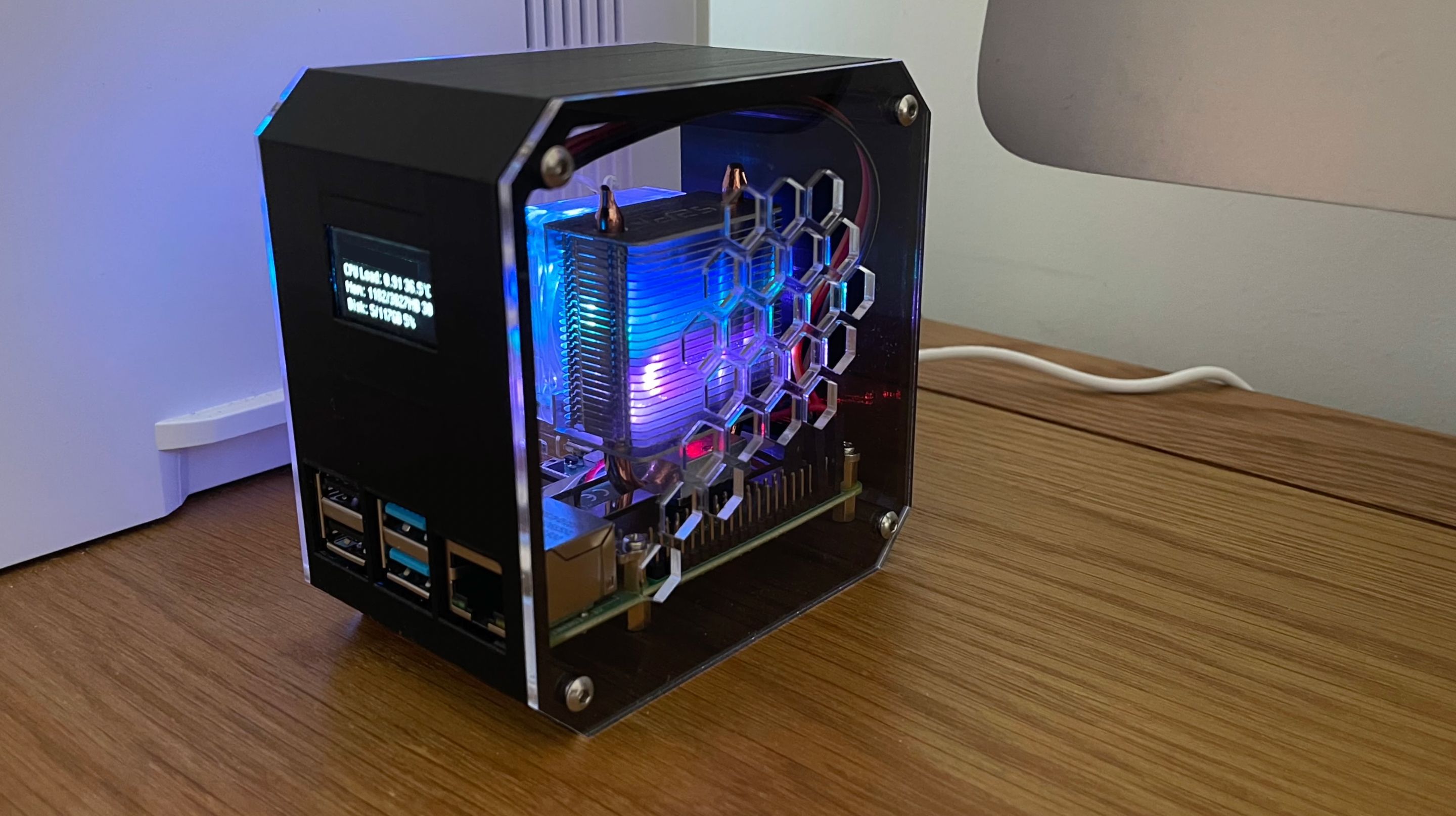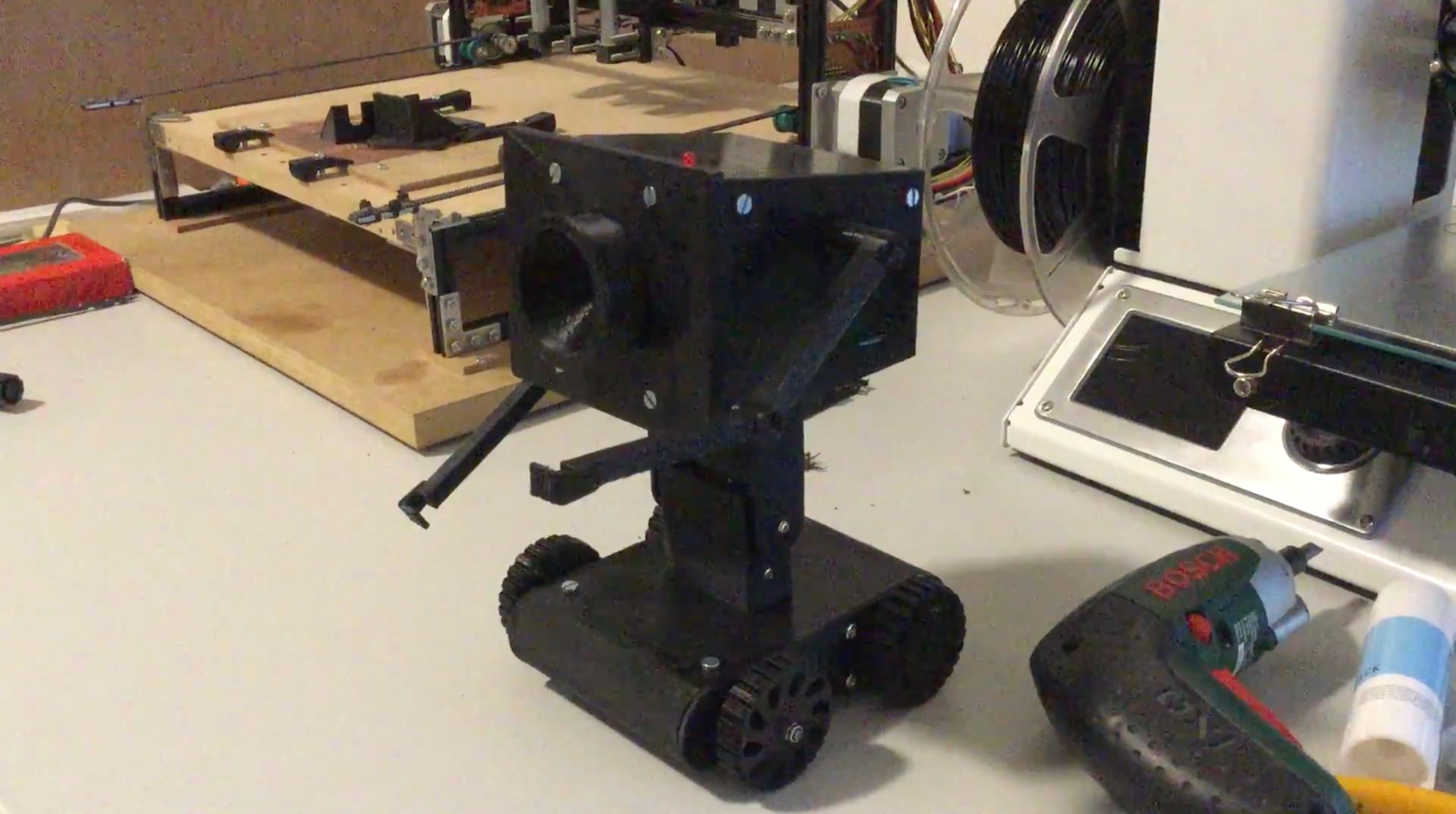Featuring a Broadcom/ARM SoC (System on Chip) with a GPU, RAM, and both wireless and wired connectivity options (via the Ethernet port on full-size models), the Raspberry Pi is a highly versatile piece of kit.
Its small size and processing power make it ideal for robotics. In this article, we'll take a look at ten impressive robotics projects created using a Raspberry Pi.
1. Raspberry Pi Humanoid Robot
Humanoid robots are growing in popularity and may have features such as ultrasonic distance sensing, wireless control, and obstacle avoidance. In this project, a Robotis Bioloid kit, distance sensor, and gyroscope are required.
The maker advises using a smaller Raspberry Pi Zero instead of a full-size model. To power the Raspberry Pi Zero, a single-cell battery (2500mAh) must be used. Also, an analog-to-digital converter chip is required to read the sensor data.
2. Petoi Robotic Cat
Many children and adults would love a robot pet. Rongzhong Li has developed an open-source robotic cat project, Nybble. The team has substituted 3D-printed parts with laser-cut wooden ones. Other components include a Raspberry Pi 3B+, a Sparkfun Arduino Pro Mini, and the Nybble kit.
The mobility of Nybble is handled by an Arduino-compatible microcontroller. It retains "muscle memory" of how to move around. To aid Nybble's observation and decision-making, the Raspberry Pi is installed on top of its back. You can also modify the programming in Nybble to send simple commands like "walk" or "turn left".
3. Raspberry Pi Devastator Robot
This is the Devastator Robot! This robotic tank can be built by incorporating a Raspberry Pi Zero W with the Devastator tank mobile platform. The build includes a motor controller circuit and some Python code, as well as a mounted camera with a custom bracket which can be created by using a 3D printer.
With the new Raspberry Pi Zero 2 W now available, you may also want to consider using that instead for more energy efficiency.
4. Miniature Fighting Robot
It's a miniature fighting robot made with a Raspberry Pi Zero. Inputs from a Bluetooth game controller are translated into commands for the motor controllers connected via GPIO. Rather than using a classic RC transmitter, this beginner-friendly approach via GPIO pins makes it ideal for younger users.
A L298N board handles the two N20 gear motors that provide locomotion, while a Tarot TL300G ESC is responsible for spinning the brushless motor attached to the “bow tie” spinner in the front. Add in a Turnigy 500mAh 3S battery pack and you’ve got everything needed to fit into the robot’s 3D printed chassis.
5. Pi Roomba
The Roomba is an autonomous robot vacuum cleaner. This project shows you how to create your own special Pi Roomba robot with more intelligent movement!
A Roomba 530 with a serial interface is required, so you can connect the Raspberry Pi, which is powered by an 18V battery.
For the coding part, it utilizes a Java package that uses RXTX behind the scenes to communicate with the robot and a user interface that provides a "joystick" to steer the Roomba, and a set of level meters that indicate the output from the six "light bump sensors".
6. CHOP Quadruped Robot
CHOP is a quadruped DIY robot that works similarly to the Boston Dynamics Spot. CHOP is an open-source project, so you can modify it with off-the-shelf parts and a few 3D printing components.
Its main components are a Raspberry Pi 4B and an Arduino Mega. While the Mega connects to the servo controllers and filters data from sensors such as the inertial measurement unit, the Pi takes it all in and runs a series of Python scripts to calculate the robot's gait. It also controls which way the servos should move using an inverse kinematics model.
A Bluetooth remote controller delivers commands to the Raspberry Pi to regulate the direction in which the robot's body should accelerate.
7. Spot Micro
This is a miniature version of the popular Spot quadruped robot. The Spot Micro bot has a three-axis angle command/body posture control mode that can accomplish 'trot gait' or 'walk gait' using the keyboard.
The software is operating on a Raspberry Pi 3B with Ubuntu 16.04 installed. In an ROS framework, it's made of C++ and Python nodes.
The main components required are: Raspberry Pi 3B, a servo control board based on the PCA9685, servos, 16x2 I2C LCD panel, 4000mAh Lipo battery, direct connection to servo board for servo power, 5V voltage regulator to power Raspberry Pi, PCA9685 control board, custom 3D printed parts, as well as an optional Lidar for room mapping.
8. Ping Pong Robot
As its name suggests, this robot can play ping-pong (aka table tennis). Highly intelligent, it can adjust its gameplay difficulty from simple to advanced.
Play against this ping-pong robot for some serious practice or leisure. While you could purchase a similar commercial bot for over $2,000, this one can be built effortlessly with existing parts, laser-cut components, and 3D printed parts. It can also carry about 100 TT balls, and connects via WiFi.
9. Cryptocurrency Robot
Looking for an open-source cryptocurrency trading solution? Then check out this project, a Raspberry Pi robot that serves as a fully automated self-operating cryptocurrency trading project. The project is designed in such a way that if certain parameters are followed, then trading of cryptocurrency will occur automatically.
In this device, the Raspberry Pi 4 is held inside a custom-built case along with an LCD screen. The front panel displays processor temperature, CPU usage, and current availability of storage space.
On the software side of things, the Raspberry Pi OS is at the heart of it, running trading software developed by Goose Representative 1 with Python programming. Being open-source means that with minimal Python coding experience, you could modify the code to use your trading account with little hassle.
10. Butter Robot
The Butter Robot is able to record or stream a video with the Raspberry Pi Camera Module and a USB device. It can also capture and output audio.
At its core, this small rover bot is comprised of a Raspberry Pi Zero W, Camera Module, servos, and the DC motors are connected with a L9110 motor driver. The robot operates through a Blynk app, which also supports a video stream.
The video stream was established by using MJPG streamer. Finally, a ServoBlaster was used to control servos as it retained the PWM output in the background. The components required for making this robot are: Raspberry Pi Zero W, RPi Camera Module, USB audio board, L9110 motor driver, DC geared motors, 9g servo, 3mm LED, speaker, slide switch, and battery pack.
Which Raspberry Pi Robotics Project Will You Make?
In this article, we have taken a look at ten different purpose-built robots that make use of the Raspberry Pi. Most of the robots are programmed using the easy-to-learn Python language.
These projects require a basic to intermediate skill level. Before commencing any project, consider which Raspberry Pi model is best to use, as well as any modifications you want to make.

